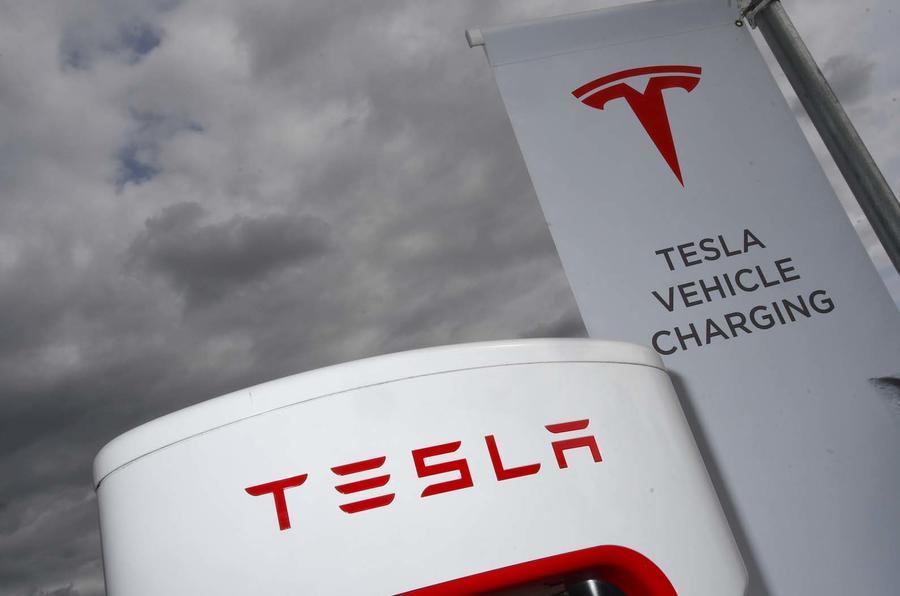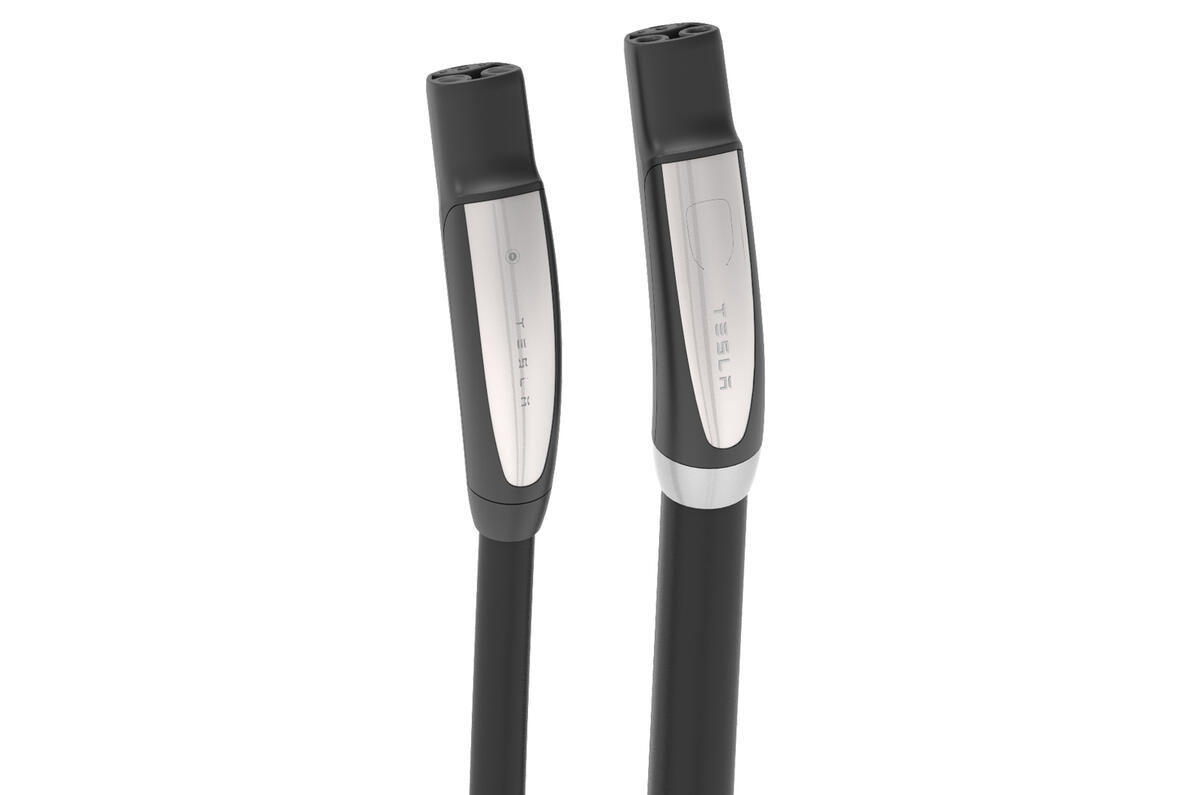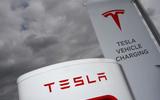Tesla has unveiled a new third-generation version of its Supercharger system, which, it says, will allow a Model 3 to recover 75 miles of charge in five minutes – and charge at rates of up to 1000 miles per hour.
The electric car firm’s V3 Supercharger system is built on an entirely new architecture, with a 1MW power cabinet that can charge at up to 250kW per car. Tesla estimates the increase in charging speed will cut the amount of time customers spend charging their cars in half.
Tesla has also developed a new feature to help reduce charging times for Model 3 owners. Called On-Route Battery Charging, the system begins to heat the batteries when navigating to a Supercharger station, to ensure they are at optimal charging temperature on arrival.
Through that system and the V3 Superchargers, Tesla estimates that a typical charging time at one of the units will drop to 15 minutes.
The V3 charging system will initially be available for only the Model 3. Tesla says software upgrades are due in the near future to increase charging speeds for Model S and Model X machines. The Model Y SUV, due to be revealed next week, will likely also be able to use the system because it shares technical elements with the Model 3 saloon.
The first beta test V3 chargers are currently in operation in California, near Tesla’s headquarters, and work on the first full sites will begin in April. The first V3 Supercharger sites in Europe and Asia are due in the final quarter of the year.
Tesla currently has more than 12,000 Supercharger sites in North America and says it plans to have coverage for 99% of the European population by the end of the year.
Read more
Autocar spends a day at a Tesla Supercharger
Tesla Model Y due to launch on 14 March












Join the debate
Add your comment
I think I read somewhere that
I think I read somewhere that one of Tesla's battery engineers saying that immensely fast charging is good up to a point and then it gets excessive and will prematurely degrade the battery
He went on to say that the rate of charge for the upcoming Porsche cars at 800 volts would quite rapidly destroy the battery cells
Don't know if it's TRUE but it sounds reasonable
Charging Standards
Long term battery life vs Ever faster charge rates
I seem to recall an issue with Nissan Leaf battery life (in USA?), where faster charging over the majority of charge events, depleted the charge "memory", ie the capacity of the battery to take up a 100% charge over the life of the battery. Fast charging constantly, was alleged to reduce the life of the battery and owners were complaining of the car then not being fit for purpose. Nissan then addressed this, but perhaps not fully.
Another case of one part of the technology not being advanced in concert with a vital connected other piece of tech?. All sorts of opinions regarding just how much of a depletion will be registered before the battery is then not of worthwhile use in the car, but prospective long term owners will need to do their research and ask searching questions of the sales person, the answers perhaps being outwith the knowledge of said seller, thus reinforcing the reluctance to commit to the purchase.